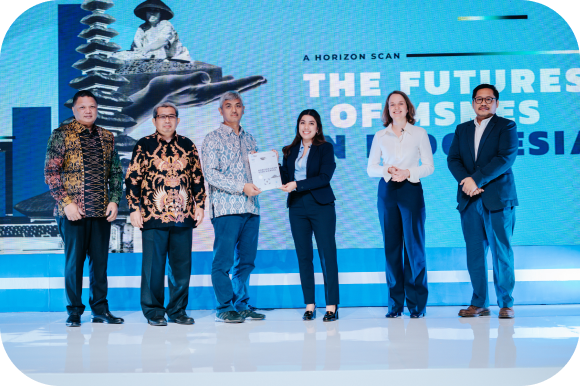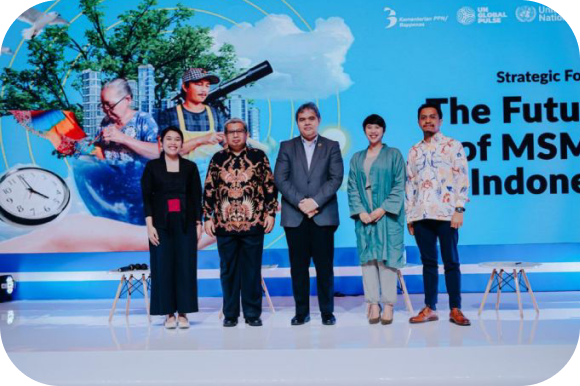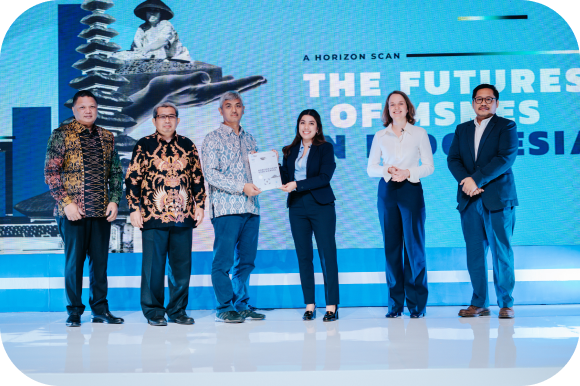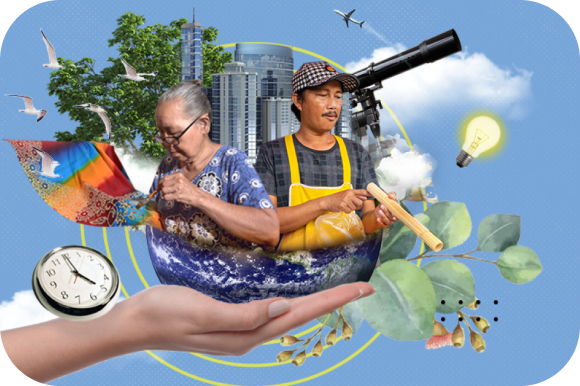

MSMEs significantly contribute to the Indonesian economy but as the recent pandemic and global crisis proved, they are particularly vulnerable to negative shocks.
In uncertain times, it's essential to understand the potential issues that could affect MSMEs in the future.
the future landscape of MSMEs in Indonesia?
THE RACE AGAINST TIME

SUSTAINABLE ECONOMIC PARTNERSHIPS

IN THE GIG ECONOMY

SHIFT IN CONSUMER PREFERENCES

NEW WAYS OF WORKING

a Horizon Scan the Futures of MSMEs in Indonesia
THE RACE AGAINST TIME
Rising sea levels and global temperatures will cause disruptions in the natural ecosystem, potentially spark the emergence of new zoonotic diseases, and disproportionately affect vulnerable populations. This will have varying impacts on MSMEs, from the supply chain to the demand for goods and services.
The need to offset the impacts of climate change is driving the demand for a circular economy as an alternative way of doing business. This creates new market opportunities and entry points for Indonesian MSMEs to adopt greener business practices.

SUSTAINABLE ECONOMIC PARTNERSHIPS
In response to climate change, Indonesia's participation in global economic cooperation on green infrastructure, water conservation and clean energy transition is increasing.
Additionally, increased dialogue between governments to promote the export of local products also opens new opportunities for MSMEs to expand to international markets.
SHIFT IN CONSUMER PREFERENCES
Increased awareness of climate change, social challenges, demographic changes have changed consumer behaviors. This has led to increasing demand for ethical products, and a rise in emerging sectors such as care work and the halal economy.
This offers many opportunities for Indonesian MSMEs to engage in new businesses and to access alternative financing schemes.


NEW WAYS OF WORKING
In recent years, technology has grown rapidly. Automation, blockchain technology, the metaverse and Artificial Intelligence have shaped business operations in unexpected ways.
While MSMEs can use technology to boost their business, not all can equally benefit from it, signaling a widening digital gap.
Moreover, the risk of insufficient regulations on technology can negatively affect MSMEs and consumers, which can potentially create new challenges in the future.

IN THE GIG ECONOMY
The digital era has increased work in the gig economy, which offers MSMEs access to a larger pool of workers and flexibility in contracting.
However, gig workers are at risk of precarious working conditions due to the nature of their employment.
We came to these five drivers by using the horizon scanning technique as one of the main Strategic Foresight tools. This is what the process looked like:
 a 6 month period
a 6 month period
 with 12 scanners
with 12 scanners
 in 3 groups
in 3 groups


 unconventional articles and sources desk reviewed
unconventional articles and sources desk reviewed
 interviews with experts and stakeholders from academia, the private sector, government agencies, NGOs and youth.
interviews with experts and stakeholders from academia, the private sector, government agencies, NGOs and youth.

 signals filtered, validating emerging signals through
signals filtered, validating emerging signals through
 FGD with
FGD with
 experts from academia, private sector, NGOs, and youth.
experts from academia, private sector, NGOs, and youth.

and drivers and their potential future implications
Horizon Scanning: A Quick Introduction
What is Strategic Foresight: A Strategic Foresight Approach
On 15 December 2022, the Indonesian Ministry of National Development Planning (Bappenas) and United Nations Global Pulse (UNGP) hosted the “Strategic Foresight: The Futures of MSMEs in Indonesia” joint report launch in Jakarta. The event successfully presented the results of the horizon scanning activity and generated discussions about the potential emerging issues that could possibly affect Indonesian MSMEs 10-20 years in the future. Around 100 representatives from various stakeholders including the Indonesian government, multilateral organizations, academia, NGOs and private institutions attended the event.
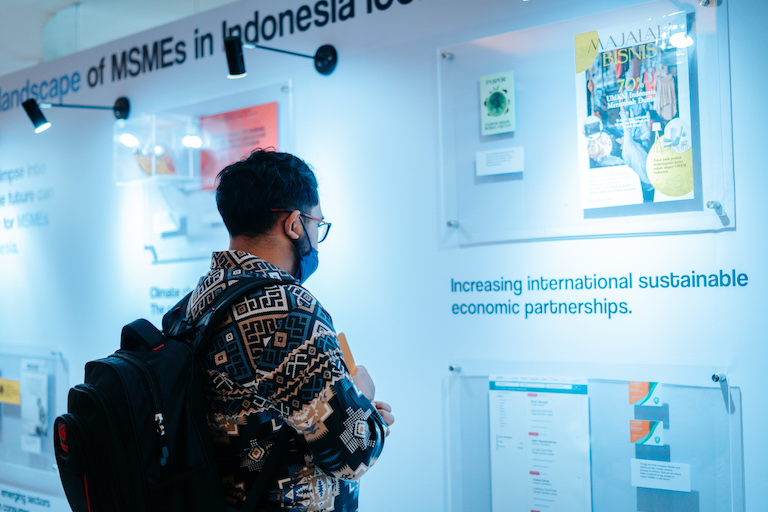
A participant views the exhibition of artifacts from the future that highlights a few scenarios in the potential futures landscape of MSMEs.

Petrarca Karetji, Head of Pulse Lab Jakarta, delivers the first opening speech.

Valerie Julliand, United Nations Resident Coordinator in Indonesia, gives the second opening speech from the perspective of the UN in Indonesia.
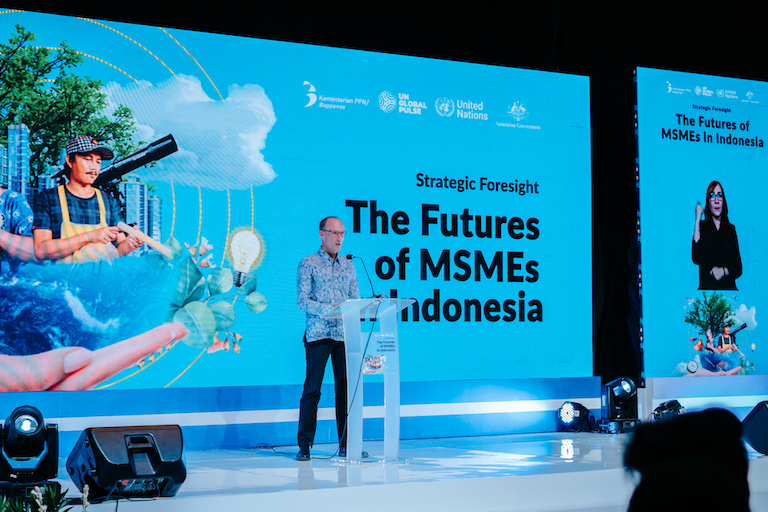
Simon Ernst, Counsellor for Development Effectiveness and Sustainability Section, giving the opening speech on behalf of the Australian Embassy in Jakarta.
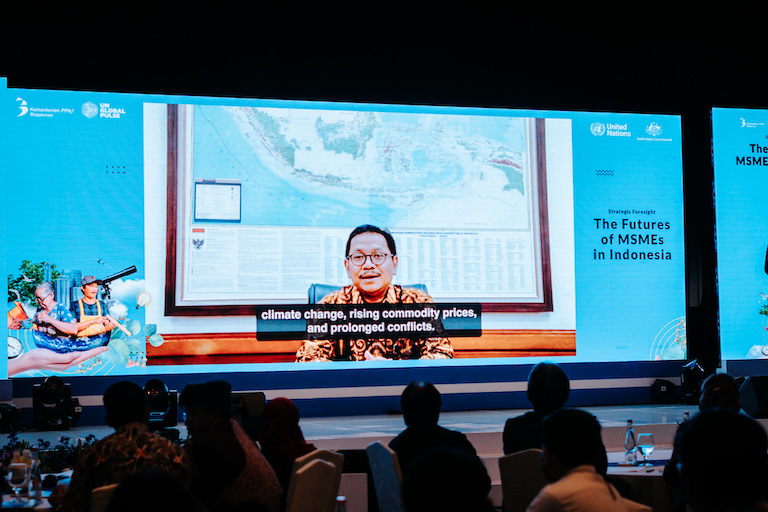
Taufik Hanafi, the Executive Secretary of National Development Planning (Bappenas), delivers the final keynote speech.
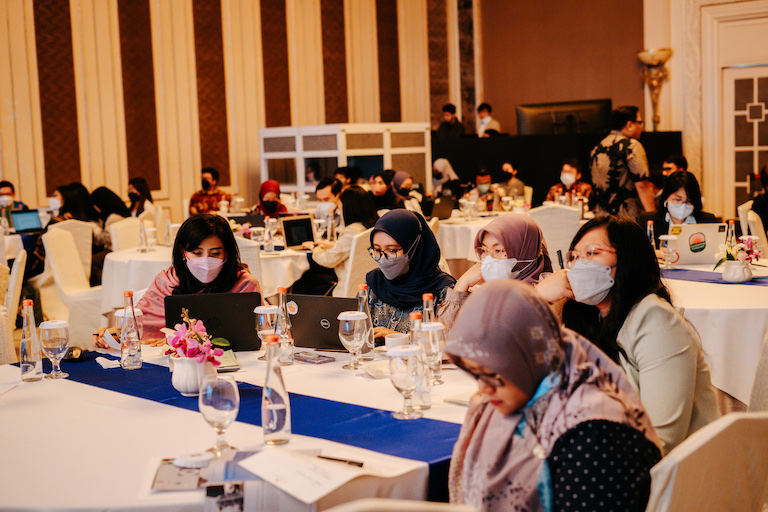
Event participants from a range of stakeholders including government representatives, multilateral organizations, academia, private institutions, and NGOs.
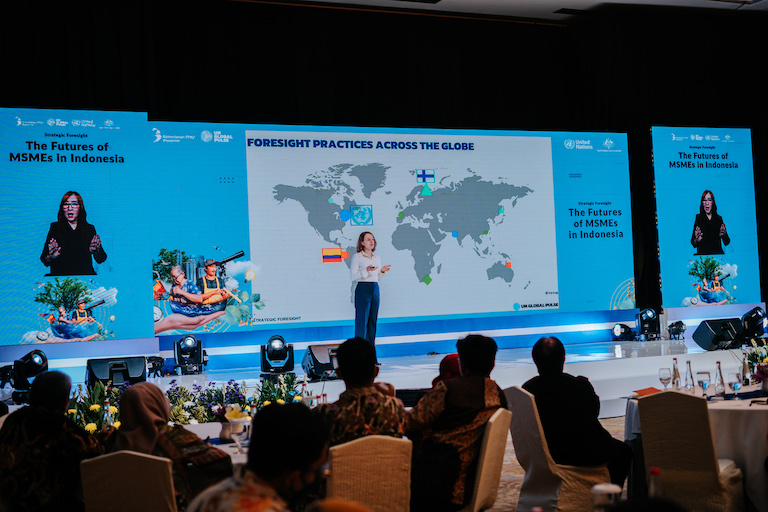
Minke Mijnders, Strategic Foresight Specialist from UN Global Pulse’s Pulse Lab Finland office who supported the development of the report, gives a Lightning Talk about the use of Strategic Foresight.
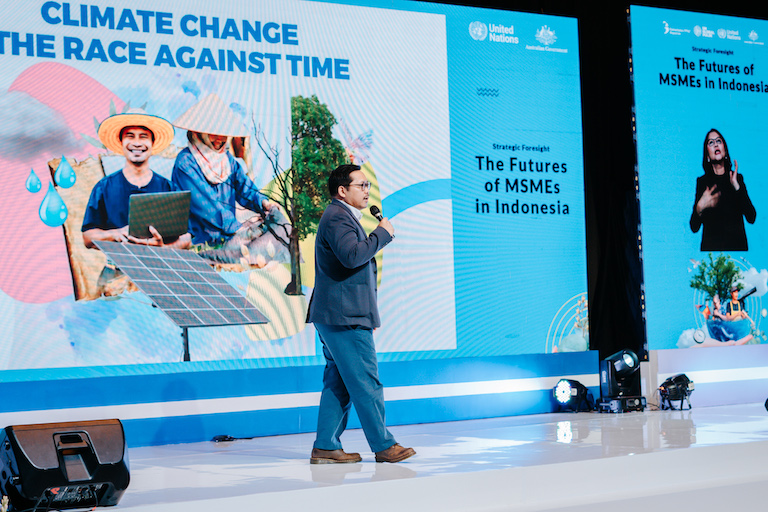
Aaron Situmorang, Research Manager at Pulse Lab Jakarta, shares the horizon scanning results on the futures of MSMEs in Indonesia.
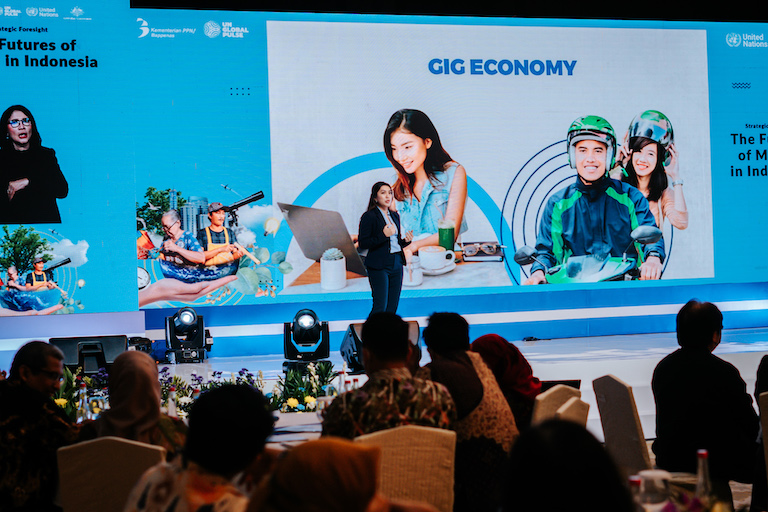
Mariska Yasrie, Planner at PPN/Bappenas, shares the horizon scanning results on the futures of MSMEs in Indonesia.
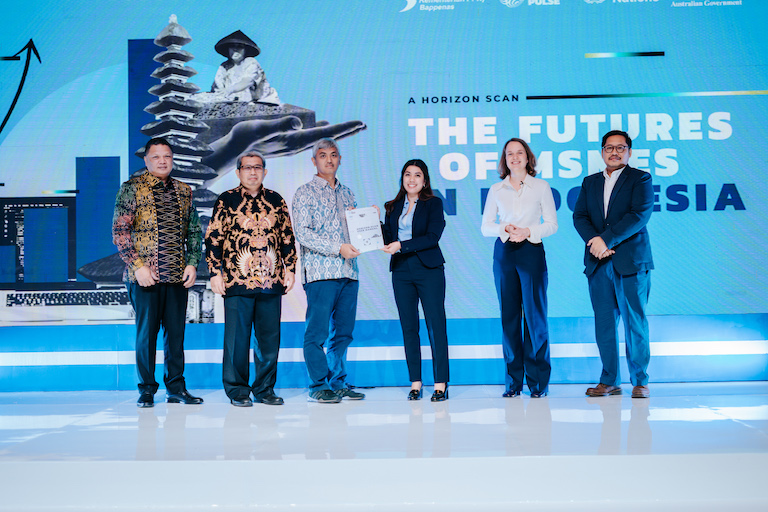
The official symbolic handover of the “Strategic Foresight: The Futures of MSMEs in Indonesia” report to Bappenas. L-R: Petrarca Karetji, Ahmad Dading, Ervan Maksum, Mariska Yasrie, Minke Mijnders, Aaron Situmorang
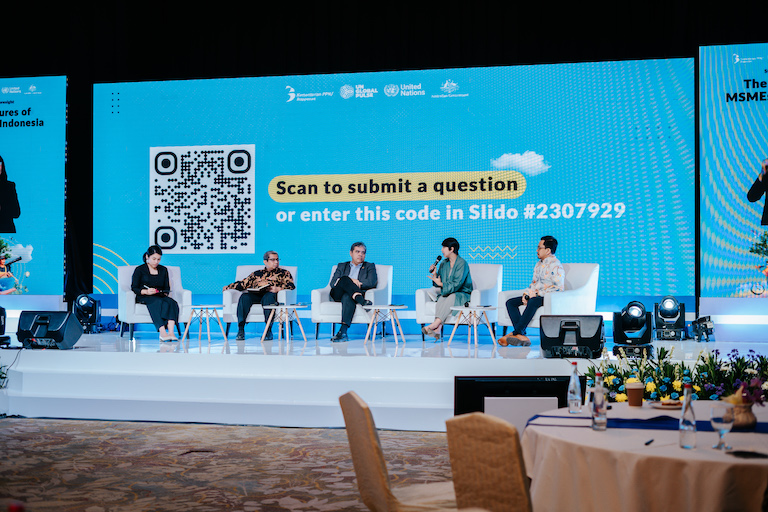
Desi Vicianna, Government Partnership Coordinator from Pulse Lab Jakarta, moderates the panel discussion with Ahmad Dading (PPN/Bappenas), Yanuar Nugroho (PPN/Bappenas), Gita Syahrani (Lingkar Temu Kabupaten Lestari), Harry Lesmana (PPN/Bappenas)
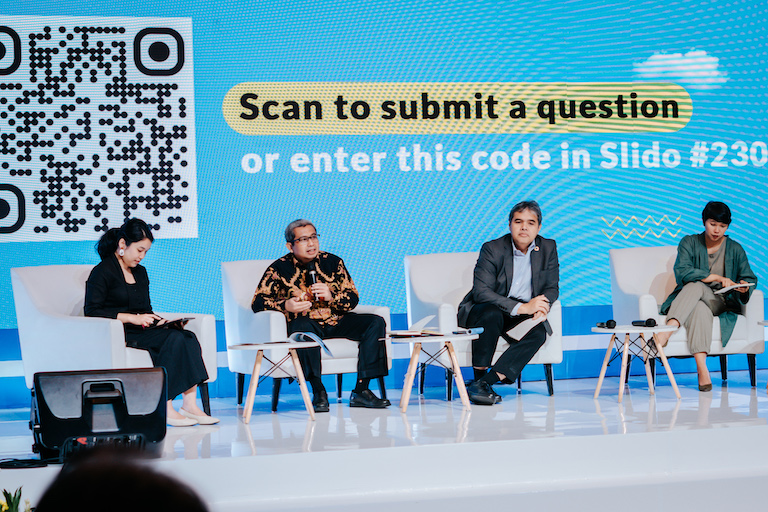
Desi Vicianna, Government Partnership Coordinator from Pulse Lab Jakarta, moderates the panel discussion with Ahmad Dading (PPN/Bappenas), Yanuar Nugroho (PPN/Bappenas), Gita Syahrani (Lingkar Temu Kabupaten Lestari), Harry Lesmana (PPN/Bappenas)
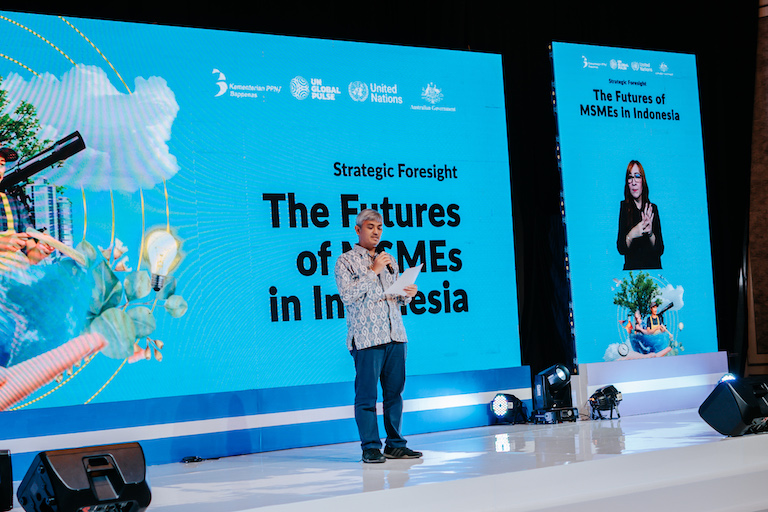
Ervan Maksum, Special Staff to the Minister of National Development Planning (Bappenas), delivers the closing speech to mark the end of the plenary session
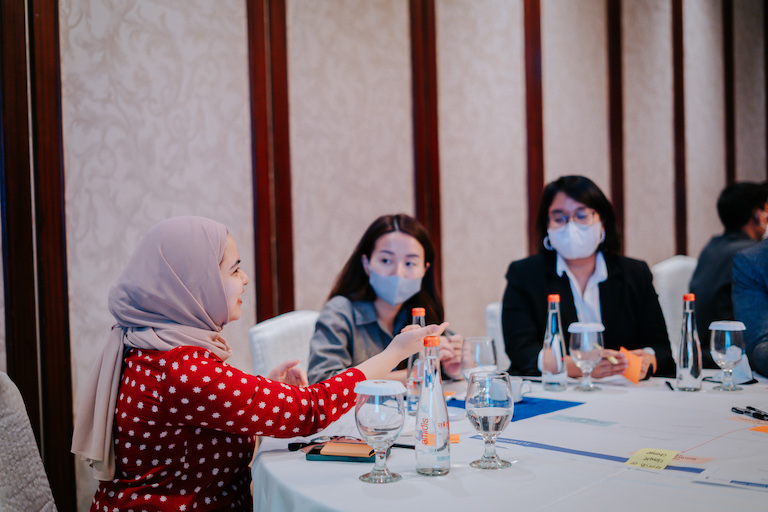
Participants discuss the Scenario Building excerise in one of the two workshops hosted to further discuss strategic foresight and the results of the horizon scanning
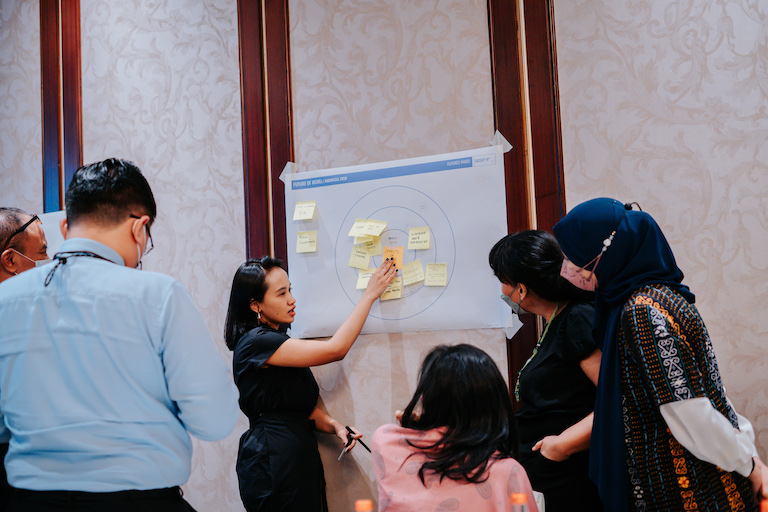
Participants discuss the strategic foresight exercise on Futures Wheels in one of the two workshops hosted to further discuss strategic foresight and the results of the horizon scanning.
take part in the action.
 plj@un.or.id
plj@un.or.id
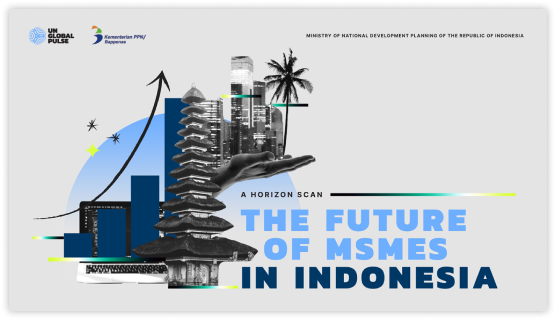
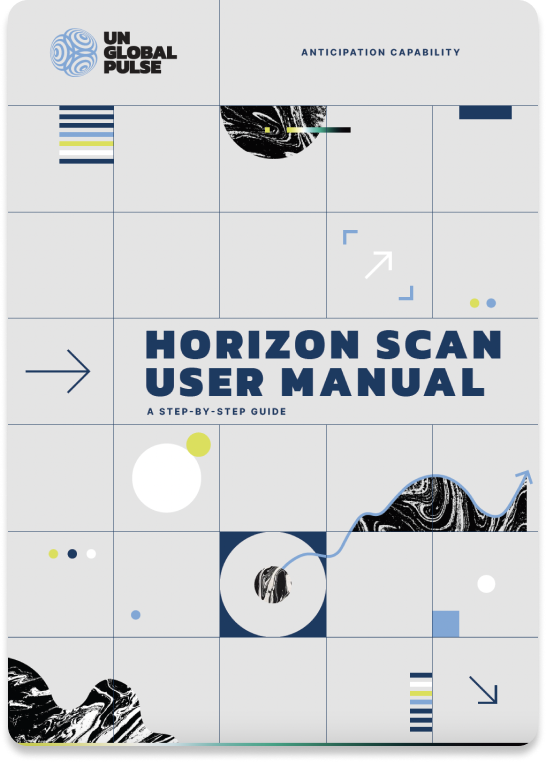
 Download Horizon Scanning Manual (English)
Download Horizon Scanning Manual (English)
 Download Horizon Scanning Manual (Indonesia)
Download Horizon Scanning Manual (Indonesia)

